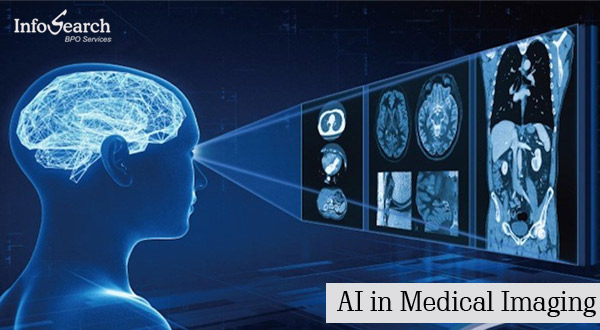
AI Revolutionizes Medical Imaging with Breakthrough AlgorithmsAI Revolutionizes Medical Imaging with Breakthrough Algorithms Artificial intelligence (AI) is rapidly transforming the field of medical imaging, introducing groundbreaking algorithms that enhance diagnostic accuracy, optimize workflow, and improve patient outcomes. Here are some of the pivotal advancements: 1. Enhanced Image Analysis: AI algorithms can analyze medical images with unprecedented detail and precision. They can detect subtle patterns, anomalies, and deviations from normalcy that may be missed by the human eye. This enables early detection of diseases, including cancer, heart disease, and neurodegenerative conditions. 2. Automated Diagnostic Support: AI-powered systems can provide automated diagnostic insights, assisting clinicians in making accurate and timely decisions. By leveraging machine learning models trained on vast databases of medical images, these algorithms identify and classify abnormalities, reducing the risk of misinterpretation and diagnostic errors. 3. Personalized Imaging: AI algorithms can tailor medical imaging protocols to the individual patient’s anatomy and medical history. They optimize scan parameters, such as the dosage of radiation, to achieve the best possible diagnostic results while minimizing patient exposure. This personalized approach enhances image quality and reduces unnecessary imaging procedures. 4. Workflow Automation: AI algorithms can automate various aspects of medical imaging workflow, freeing up clinicians to focus on patient care. They can automatically segment and label anatomical structures, generate reports, and even perform quality control checks. This streamlining reduces time spent on non-essential tasks, improving efficiency and productivity. 5. Predictive Analytics: AI algorithms can analyze longitudinal medical imaging data to predict the likelihood of disease progression or the effectiveness of treatment plans. This information empowers clinicians to make informed decisions about patient management, including the need for further diagnostic testing or the adjustment of treatment protocols. Conclusion: AI-powered algorithms are revolutionizing medical imaging, enabling more accurate diagnostics, optimized workflow, and personalized patient care. As these algorithms continue to evolve and integrate with medical technology, the future of healthcare looks promising, with better health outcomes and improved patient experiences. The transformative potential of AI in medical imaging is limitless, holding the key to unlocking the next frontier in healthcare advancements.
Posted inNews